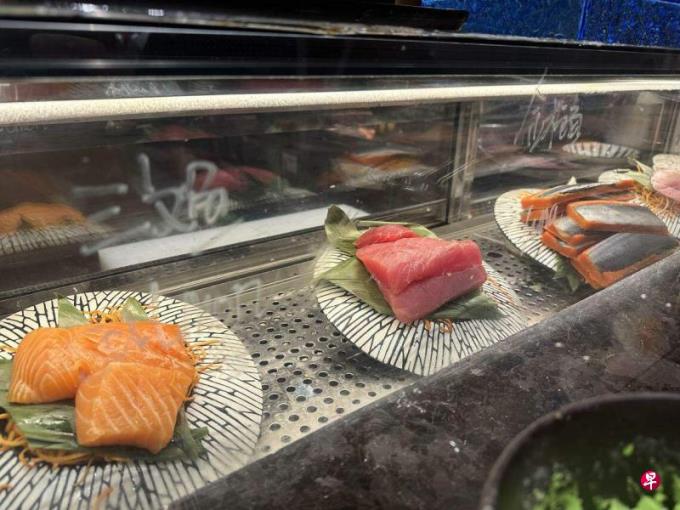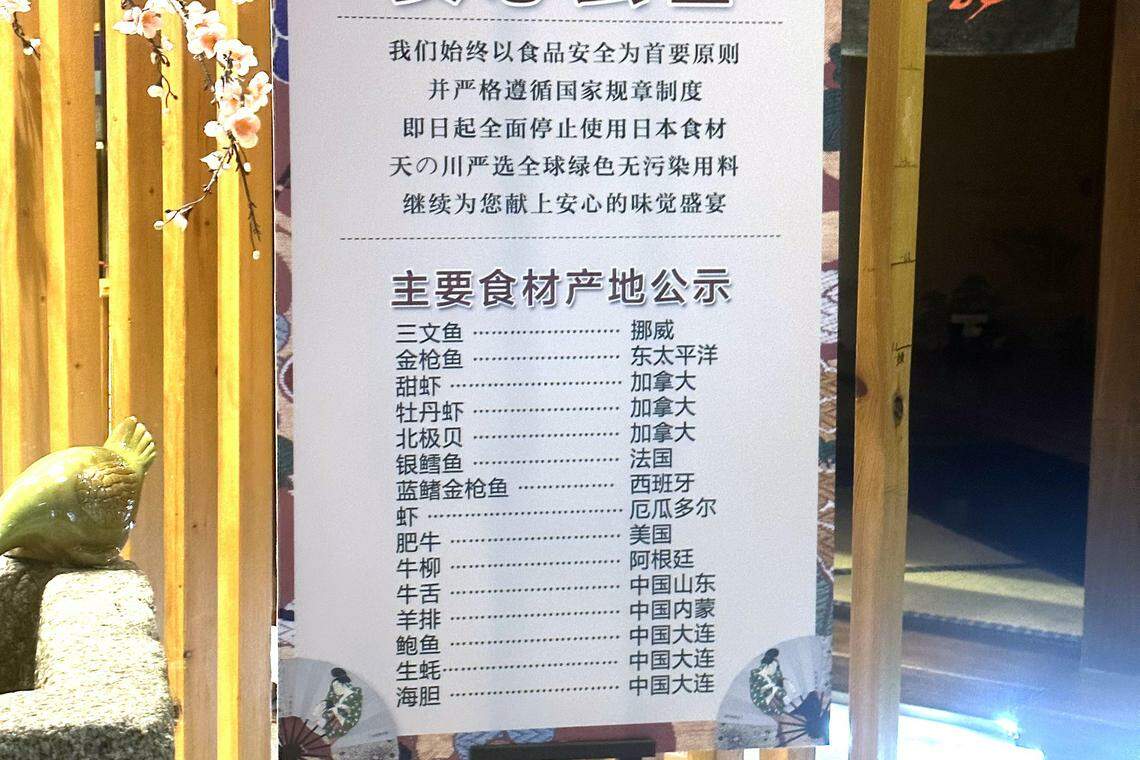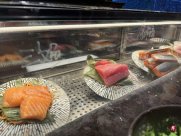
China comprehensively suspend import Japanese seafood in response to Fukushima nuclear waste water discharge.The affected Dalian Japanese restaurants have said that alternative ingredients have been found, but some restaurants have admitted that business is still declining significantly, and some have fallen as much as 40%.
After the discharge of Fukushima nuclear wastewater on August 24 this year, China fully suspended the import of Japanese aquatic products on the grounds of "radioactive pollution risk".This ban has a direct blow to Chinese Japanese restaurants, especially cities with high demand for imported seafood in Japan.
China Finance Magazine reported the data of the General Administration of Customs of China. From January to July 2023, Liaoning Province, where Dalian is located, is the province with the largest number of seafood imports in Japan, accounting for 26.42%of the country's total imports.
Dalian is the southernmost coastal city of the Liaodong Peninsula in Northeast China. It has a relationship with Japan in history, economy, and personnel.Japan's main food culture mainly rooted in Dalian for a long time, driving the prosperity of the local Japanese catering industry.According to incomplete statistics, there are more than 400 Japanese restaurants and izakaya in Dalian.
Reporters visited several Japanese restaurants in Dalian in mid -September that most restaurants had stopped using seafood imported from Japan and found alternative ingredients from other regions.Some operators even posted announcements at the store's entrance to clearly list the origin of different ingredients, such as salmon from Norway, tuna from the East Pacific.

Tian Xin, the head of a Japanese -style restaurant that focuses on Okinawa's cuisine in Dalian Development Zone, told Lianhe Morning Post that the import ban has little impact on the ingredients of the store, and the dishes on the menu have not decreased.
She said: "The ingredients we use have always come from all over the world, and there are not many from Japan. Some seafoods are actually local products in Dalian.Processing. "
Dalian is located at the junction of the Yellow Bohai Sea. There is a wide range of low -temperature water bodies in this waters, and marine latitude and characteristics are similar to the waters near Japan.Relying on water resources and geographical advantages, Dalian fisheries have ushered in rapid development in the past ten years, and marine economy has become an important engine to drive local economic growth.
After the news of the discharge of Fukushima nuclear waste water, some customers were worried about the safety of seafood ingredients, which led to a decrease of 10 % to 20 % of the seat rate of Tianxin Rim.She said: "Although we did not use ingredients from Japan, some customers still could not overcome psychological obstacles, and would rather stay away from Japanese cuisine for the time being."
For mid -to -high -end Japanese -high -end Japanese ingredients with fresh raw fish as the core ingredients, the impact of import restrictions on them is more significant.In a Japanese store with a per capita consumption of about 500 yuan (RMB, S $ 93) in the Jintongtan tourist area in Dalian, Liu Hujie, deputy store manager of the store, lamented that the business in the store fell nearly 40% after the ban took effect.EssenceOn the day of the reporter's visit, even if it was dinner time, there was no one in the store.
Liu Hujie said that the seafood imported from Japan before the store, including bluefin tuna and scallops, can be imported from other countries to alternate seafood, but the quality is very different.For example, the blue -made blue tuna made by Nagasaki, Japan, was recognized by the Japanese industry as a better quality because of thick fat and more delicious meat.Today, restaurants have to switch to Spain's bluefin tuna.
She said: "As a higher -end Japanese restaurant, if we cannot provide customers with higher -end ingredients, it is difficult to distinguish it from other restaurants in terms of positioning."
The latest data from China Customs shows that the aquatic products imported from Japan in August this year decreased by 68%year -on -year, and the decline was more significant than 29%in July.As China has fully suspended the import of Japanese aquatic products, it is expected that Japan's export of Chinese aquatic products will be zero after September.
China is the largest export market for Japanese aquatic products.According to data from Japanese agriculture and forestry and aquatic products, Japan exported aquatic products exported to China last year as high as 87.1 billion yen (S $ 800 million), accounting for 22.5%of the total exports of Japanese aquatic products.
China's import restrictions on the Japanese fishing industry and the seafood economy have a huge impact, so some fishermen who provide seafood who provide seafood in the Chinese market need to temporarily rest.According to the Japanese Yomiram newspaper, October was originally a peak season for fishing. However, a fishery cooperative in Yokohama City decided to suspend the suspension of sea cucumber fishing activities because he could not find buyers outside China.
Lin Dawei, a senior researcher at the East Asian Research Institute of Singapore National University, said in an interview that Japan ’s seafood exported to China includes high -end products such as sea cucumbers and scallops, and these products only account for only the Chinese seafood consumer market.a small part.He added that from a macro perspective, the ban actually had little impact on China, but for Japanese fisheries, it was a considerable income.
But some experts have pointed out that aquatic products only account for less than 1%of Japan's global trade, so China ’s ban on Japanese aquatic products is more of a political gesture, and it will not cause substantial harm to the overall economy of Japan.
China, Japan, and South Korea will hold high -level talks on September 26 (Tuesday) to discuss topics such as three -sided cooperation and pave the way to restore the three -country summit talks that have been interrupted since 2019.Nuclear waste water treatment and seafood ban will be one of the agenda agenda.
Lin Dawei also mentioned the interdependence of Sino -Japanese economic and trade in the interview.He interpreted: "Among the products exported to China in China, half of them are exported after processing in China. If the relationship between the two parties continues to be deadlocked, the processing plants will be hit, affecting China's employment and export, which is not good for both parties."/P>
Lin Dawei also pointed out that the Japanese Prime Minister Kishita Kishita has tried to explain the position of the Japanese side when he came into contact with Chinese leaders at the International Summit in the past few weeks, but did not achieve substantial results.He judged that at least from the recent attitude of Chinese official media, the attitude of China's consultation with the coming was positive.
The English version of the China Official Media Daily Times on Thursday (September 21) said in the editorial that I hope that Japan and South Korea will cherish opportunities and take the high -level meetings on Tuesday as a new starting point for the cooperation of the Three Kingdoms to open more possibilities for hope full of hope.sex."
Lin Dawei said: "If all parties maintain such a positive situation during the talks, then they have the opportunity to reach a compromise from the problem and achieve a win -win situation."



